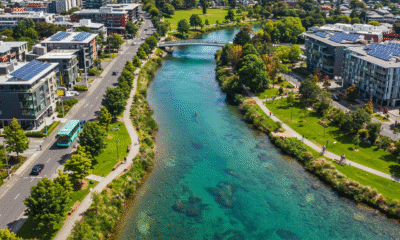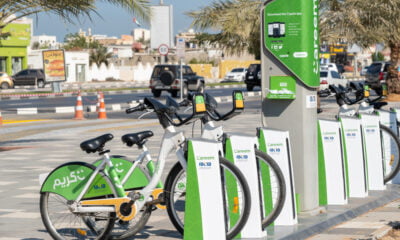The normal that we once knew hasn’t come back, and it’s pretty clear that it won’t.
We are still battling variants of the Covid-19 virus while trying to decide whether to vaccinate or not to deal with this long term. Some cities are open for travel while other borders are closed, but one thing is sure: the people of the world want to get out and venture to the far distances of the globe.
The downtime of travel has shown us the value of putting less pressure on the planet seeing oceans, flora and animals thrive from the lessening of the global impact of travel.
We need to take a lesson from this and start practicing more sustainable travel focuses as the population begins booking flights again. We also need to understand how travel policies are changing, such as with new visa requirements. If you need Covid-19 PCR testing in order to comply with these new requirements, consider a medical practice offering urgent care in Irvine. Here are four sustainable travel tips to help lessen the adverse effects of travel as the world opens up.
Sustainable Travel Luggage
Travel luggage is not something that you have a choice in buying. Buying a suitcase to carry your travel essentials is something 100% of travelers do, picking from 100’s of options. However, when purchasing luggage with the earth in mind, it is clear there is only one brand that fits your needs. Monos Travel and Luggage is Climate Neutral certified and is part of 1% For The Planet.
Check out their Carry-On and Check-In Large for your sustainable travel needs.
Buy Local
The whole idea of travelling is to get away from the mundane everyday life you have created. Your life back home is safe, and it is a routine to keep you financially and mentally stable.
Now that you are in a new country and city, it’s time to step outside your comfort zone. Go ahead and pick a restaurant that isn’t a global chain, find a local mom-and-pop shop and taste the authentic food of your destination. There are multiple reasons for doing this, one being you will put money into the local economy, helping them keep their tourist economy thriving for you to enjoy. Secondly, by buying the local food and beer choices, the carbon footprint from farming to table is substantially smaller than if you were to eat from a significant chain that needs to fly in products weekly from around the globe.
Take local transit
When you first arrive at your destination, go onto google and search on destination points nearby to see what kind of travel options are available in the city.
Depending on how large the city is, you may find well laid out bike routes, an in-depth bus line or, best yet, a comprehensive train system. Put away your Uber app, and don’t hail a cab. The cost of these types of inner-city travel will rack up your travel fees and a substantial carbon footprint behind.
Walk if you can, take in the sites as you go. Or take any of the public transit, it has been used by the locals for many years and is good enough for them, so it’s good enough for you.
Re-Usable Water Bottle
We all have gotten a lot better at finding reusable daily objects that once were single-use in our lives. One of those is carrying around a reusable water bottle in our day-to-day lives at home, yet when we travel, most of us throw this idea out the window as the plane soars to 30,000 feet. It is a good idea to make your water bottle as sustainable as possible.
As part of your travel packing list, add purchasing a reusable water bottle just for travelling to it. Find a bottle that fits easily into your daily travel pack, whether a backpack, purse or fanny pack. You do not need it to be a 2L beast like you use at home. Find something small and easy to carry. It will be easier to fill it up multiple times while out on a day of sightseeing.
A second purchase you may want to make before your trip is finding a reusable grocery bag. Single-use plastic bags are one of the most harmful pieces our society uses today, and even though you may not be going to the grocery store daily on your trip, they can be used in many other ways to be helpful. Also, they take up next to no space in your Check-In suitcase.
As you can see, there are many ways we can tweak how we travelled before that will have a positive change on our planet. Helping the earth and those who will be inhabiting our world in 100 years doesn’t mean you need to lose any comfort or enjoyment on your travels.
Take some extra time each day and walk instead of drive, eat locally to enjoy new taste bud experiences and reduce reuse and recycle when you can. These actions will not only help our future but also add extra value to your trip.
We all can do our part to help.


 Environment12 months ago
Environment12 months agoAre Polymer Banknotes: an Eco-Friendly Trend or a Groundswell?

 Features11 months ago
Features11 months agoEco-Friendly Cryptocurrencies: Sustainable Investment Choices

 Features12 months ago
Features12 months agoEco-Friendly Crypto Traders Must Find the Right Exchange

 Energy11 months ago
Energy11 months agoThe Growing Role of Solar Panels in Ireland’s Energy Future






























